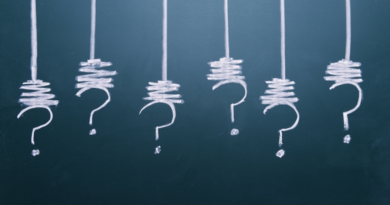EU warns Twitter over disinformation after Musk policy shifts found to boost Kremlin propaganda
Twitter was only confirmed yesterday as one of 19 major tech platforms subject to centralized oversight by the European Union’s executive starting this fall, when so-called very large online platforms (VLOPs) are expected to be compliant with the Digital Services Act (DSA). But the Commission has not wasted any time warning the Elon Musk-owned social network that things aren’t looking good for staying on the right side of the incoming law.
The DSA requires major platforms to take steps to mitigate systemic risks like disinformation, while breaches of the regime can attract penalties of up to 6% of global annual turnover. On Twitter’s 2022 revenue, such a fine could sum to over a couple of hundred million dollars — with the caveat that the platform’s revenue may not hold up this year, given Musk’s erratic antics scaring away advertisers and alienating plenty of users.
In a pair of tweets sent out today, Vera Jourova, the EU’s values and transparency VP, warned of “yet another negative sign” by Twitter — accusing the platform under Musk of “not making digital information space any safer and free from the Kremlin #disinformation & malicious influence”.
Her tweets cite an AP report on research by Reset, a London-based non-profit that tracks the spread of propaganda by authoritarian regimes, which found that recent policy changes at Twitter have significantly amplified state-backed disinformation on the platform — namely Musk’s decision to remove state-backed labels from accounts operated by authoritarian governments in Russia, China and Iran and also to lift restrictions on algorithmic amplification of their content.
Per Reset’s research, Kremlin propaganda saw a visibility boost of around a third. AP’s report also cites earlier research by the Atlantic Council’s Digital Forensic Research Lab, which found that Musk’s decision to remove the state-affiliated labels appears to have reversed a decline in followers for many of the accounts.
“To me this is a signal that #Twitter is falling short of its commitments to the anti-disinformation Code,” Jourova went on. “This is a paramount test to show they are serious about respecting the Code and ultimately compliance with the #DigitalServicesAct.”
The bloc backed restrictions on two Russian state-affiliated news channels (RT and Sputnik) in the wake of Russia’s invasion of Ukraine last year. The step included not only prohibitions on traditional broadcast media from screening the channels but a legal requirement that online platforms avoid distributing their content too.
At the time of writing Twitter users trying to access the two prohibited channels from inside the European Economic Area or the U.K. (which also imposed limits) are met with a notification that the account is “withheld” across 28 countries.
However users can circumvent the ban by, for example, using a VPN and changing their location to a country where the accounts are not withheld. And if they do that they will find that, as a result of Musk’s changes rowing back on prior anti-disinformation policies, these accounts are longer labeled as state-affiliated nor are they algorithmically de-amplified.
Jourova’s comment vis-a-vis “respecting the Code” is a reference to the EU’s Code of Practice on Online Disinformation — which Twitter voluntarily signed up to back in September 2018, when Musk was just a high profile Twitter user, not its erratic billionaire owner.
As we reported at the time, the initial EU Code was a weak bite at tackling what was then still sometimes being referred to as ‘fake news’. But the EU went on to present a beefed up version of the Code last summer. And while the mechanism remains voluntary (i.e. self regulation, rather than legally binding rules), the bloc’s lawmakers have signalled that the Code’s commitments will count towards future compliance with the DSA.
Ergo, on the flip side, not meeting the commitments to combat disinformation should count as a black mark against DSA compliance for any signed up VLOPs — which are, under the DSA, required to proactively assess systemic risks like disinformation and put in place effective mitigation measures while also taking steps to avoid harming freedom of expression.
The Commission will be technically empowered to enforce against DSA breaches by VLOPs from late August/September — when a four-month implementation period expires for the first wave of larger platforms. So Twitter still has a few months to get its house in order. (Or, more realistically, pick up the smithereens left by Musk’s wrecking ball and try to put a coherent content moderation policy approach back together.)
Although there’s actually a longer lead in for the Code commitments to bite as the mechanism can’t be officially linked to the Commission’s enforcement framework for the DSA until after a European Board for Digital Services has been set up — which is not expected until the deadline for the general entry into application of all DSA provisions (in February next year).
This means Musk probably has until early 2024 (at least) to play regional disinformation chaos agent — before any hard DSA-based reckoning lands over his love of ‘democratizing’ authoritarian propaganda.
That said, it’s interesting to see the EU getting in so early with public warnings to Musk on disinformation. Which may be a sign the Commission feels its facing some risk here too. Not least the risk that Twitter’s presence as a continued signatory to its anti-disinformation Code while its owner is actively ripping up anti-disinformation policies — and has himself been accused of spreading Kremlin propaganda — is, to put it diplomatically, pretty damn awkward.
The Code being self-regulation also ties the EU’s hands in the sense that they can’t prescribe who joins it nor boot existing signatories out for making a mockery of provisions like Commitment 18 — to “minimize the risks of viral propagation of misinformation or disinformation by adopting safe design practices as they develop their systems, policies, and features” — something Twitter was still technically signed up to at the last check.
Yet, again, it looks hard to square an on-paper claim by Twitter that it’s committed to shrinking the risks of viral disinformation with policy decisions by Musk U-turn on promoting state-affiliated propaganda channels; tearing up rules on COVID-19 misinformation; or simply blowing up the legacy verification system and replacing it with what looks like an intentionally confusing mess whereby scammers and spammers are encouraged to pay $8 to get their content automatically amplified over non-paying users.
Given the lag between the EU’s disinformation Code getting hard linked to the DSA as a key mitigation measure — as expected — and the delicate dance ahead of the Commission to enforce rules in an area as tricky and slippery as (subjective and often politically charged) disinformation the bloc appears to have decided it can at least make some noise decrying Musk’s blatantly bad faith approach in public in the meanwhile.




